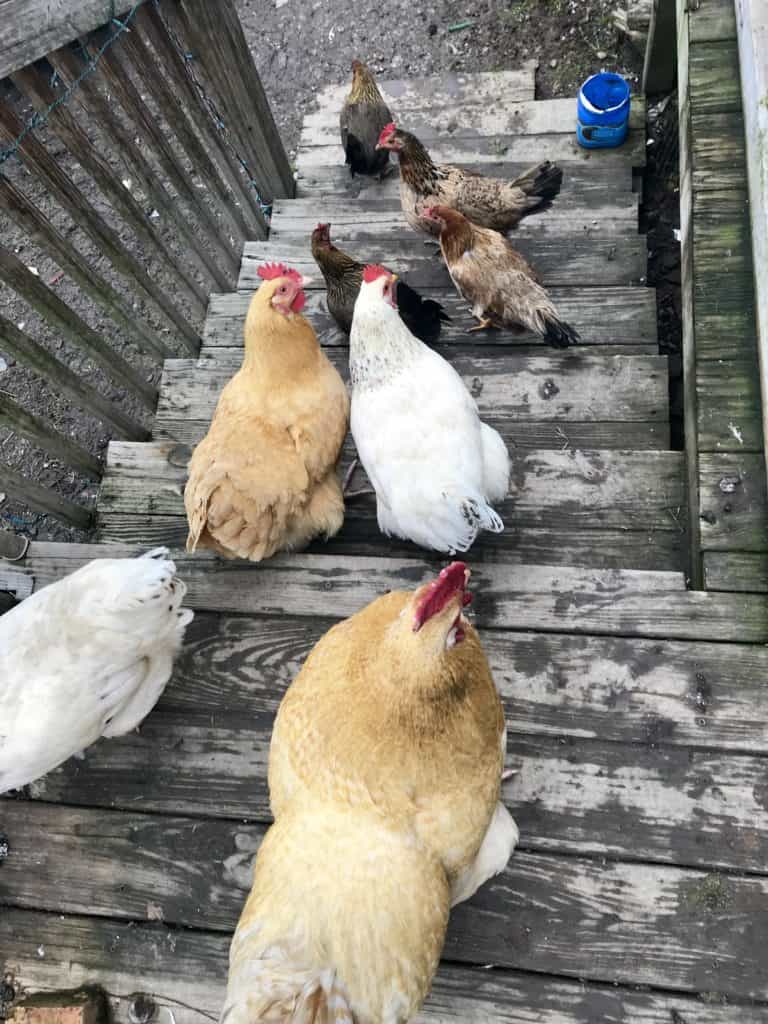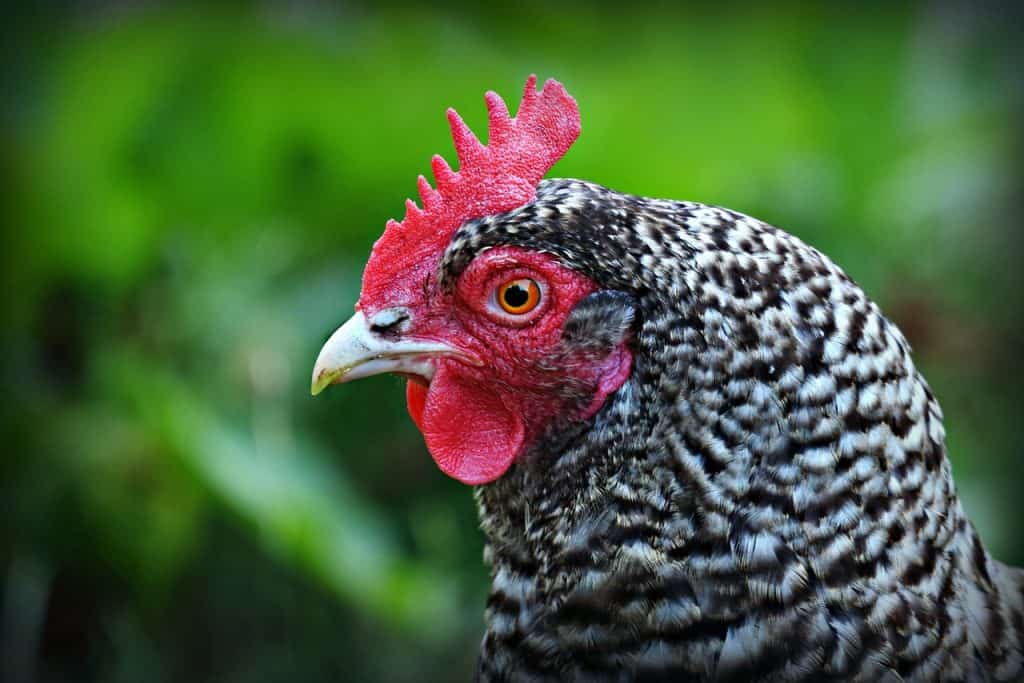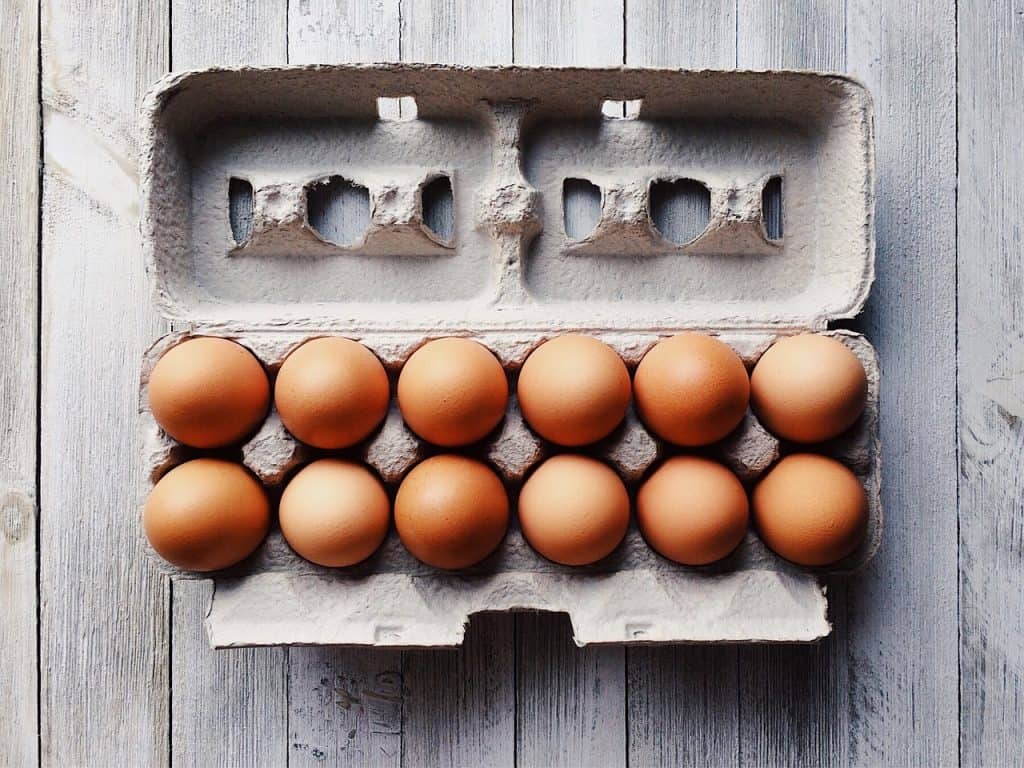Just like people, chickens need water and nourishment to thrive. What goes into a chicken’s body directly relates to their own health and their egg health. Those are important when thinking about raising chickens for meat or eggs that will be consumed by you and your family. How do you provide healthy nutrition for chickens?
Congratulations on starting your flock of backyard chickens! You bought all the necessary supplies, chose a breed, brought them home, and named them. Chickens are a wonderful choice of sustainable food and easy to keep. Make sure you are giving them options to stay healthy and provide for your family for as long as possible.
Healthy Nutrition for Chickens
Feeding your backyard chickens doesn’t have to be complicated. Chickens need five vital nutrients to thrive:
- Water
- Protein
- Carbohydrates
- Fats
- Minerals
Water
Chickens use water in a variety of ways. A baby chick is made up of 80% water. That percentage decreases as they grow over time. As an adult, 90% of a chicken’s blood is made up of water.
Water softens feed and carries it through the digestive tract. It also carries nutrients from the digestive tract to cells. Finally, it moves waste through the body.
In warm weather, water cools chickens through rapid respiration which leads to evaporation. Just a few hours of water shortage can affect egg production.
Fun fact: Chickens intake 25% of water within the last two hours of daylight.
Protein
Protein is made up of smaller units called amino acids. There are two types of amino acids: essential and non-essential. Essential amino acids must be supplied in feed. Non-essential amino acids are generated by the body.

Proteins are used in the construction of:
- Body tissue
- Muscles
- Nerves
- Cartilage
- Skin
- Feathers
- Beak
Carbohydrates
Carbohydrates make up the largest portion of the diet for chickens. Examples of carbohydrates include corn, wheat, barley, and other grains. Starch and sugars are also carbohydrates. It is best to choose a feed that includes a variety.
Fats
Fats must be present in a chicken’s diet so they can absorb fat-soluble vitamins. They also make feed more appetizing.
There are two types of fats: saturated and unsaturated. Saturated fats are solid at room temperature. Unsaturated fats are liquid at room temperature. Tallow and lard are saturated fats. Examples of unsaturated fats include corn oil, soy oil, and canola oil.
Minerals
Minerals are responsible for:
- Bone formation
- Blood cell formation
- Blood clotting
- Enzyme activation
- Energy metabolism
- Muscle function
There are two types of minerals: macrominerals and microminerals. Chickens require higher levels of macrominerals and lower levels of microminerals.
Macrominerals include:
- Chlorine (supplies acid for digestion)
- Potassium (nerve function, muscle function, metabolic function)
- Magnesium (metabolic and muscle functions)
- Sodium (electrolytes)
- Phosphorus (bone formation, cell membranes, metabolic functions)
- Calcium (blood clotting, bone formation, egg shell quality, muscle contraction)
Microminerals include:
Not all chicken feed includes these items to provide healthy nutrition for chickens. Read the labels to choose the feed that is right for your flock.

I hope you found this information useful to provide healthy nutrition for chickens. Please remember that all thoughts and opinions are my own and consult a veterinarian to decide what is right for your flock.

